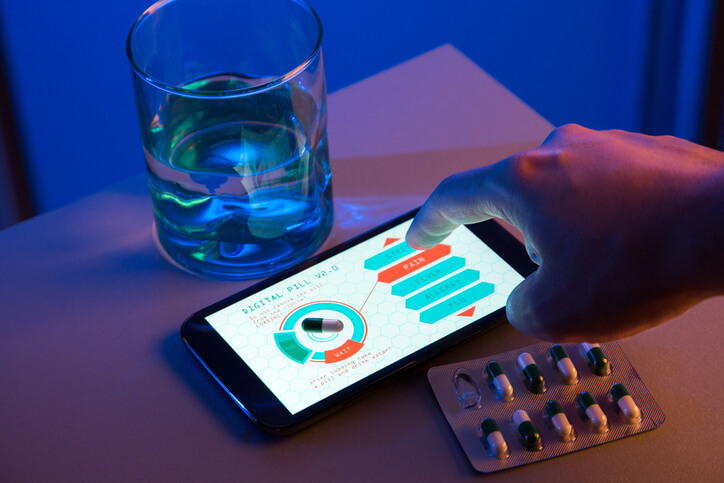Personalized medicine: A paradigm shift in healthcare delivery
The definition of diseases has been changed with the technological involvement in healthcare domain. Now, the safety and efficiency of patients’ treatment to a particular disease is highly associated with the health profile of the patient. In this context, the field of personalized medicine has revolutionized the world of precision medicine.
Personalized medicine is defined as the provision of precise medicine and treatment to the right patient in the right dose. The personalized medicine has emerged as a revolutionary field of healthcare domain.
It employs individualized medicine after specifying appropriate biomarkers mostly genetic in nature. The medicinal decision and the medical practices in personalized medicine help in determining the right and appropriate treatments suitable for each patient.
The approach of personalized medicine is targeted towards the care of the patient and focuses on how unique the diseases are and explore ways of treating that particular disease. Personalized medicine helps in understanding the genetic makeup of diseases. Due to the advancement in the field of genetics, the information about genome composition and the decoding procedures of genome help out in developing new drugs that are well suited for the patients’ treatments.
As stated by Francis Collins, the director of National Institutes of Health, “Personalized medicine is empowering because your personal genetic and other predictive information allows you to take action that is specific for you—rather than the ‘one size fits all’ approach.”
The significance of personalized medicine in healthcare can be assessed by the benefits it provides to the patients. It aims to provide the improved quality administrative methods for diagnosing and curing disease, efficiently directing the appropriate selection of therapies for patients, and also preventing the side effects of drugs on the patients.
Contrary to the “one-size-fits-all” approach, personalized medicine attempts to enhance the efficiency and quality of cure in healthcare.
Many startups have been working in the domain of personalized medicine worldwide. These startups aim to provide unique medical treatments to the patients based on the uniqueness of their genetic makeup, clinical and environmental information. The major startups working in the domain of personalized medicine include Swagene, Xcode life science, Arivale, DayTwo, and Mapmygenome among others.
| Recommended for you | |
| Precision medicine: A step towards true personalization | |
| Ethics for AI in medicine | |
| Artificial Intelligence for beginners |
How are personalized medicine & Artificial Intelligence a perfect match for each other?
Artificial intelligence (AI) has become a crucial part of the technology industry in this information age. This is a field of computer science that aims to create the intelligent machines that resemble humans in its activities. The various domains of Artificial Intelligence include machine learning, planning, speech recognition and problem-solving. AI has been adopted by many industrial sectors and the domain of healthcare is no exception. AI is utilized in facilitating doctors in many cases.
Machine learning and data analytics play a pivotal role in personalized medicine. Machine learning helps in detecting rules, patterns and the dependencies of statistics in medical datasets. It is applied in various domains of healthcare including the identification and diagnosis of diseases, manufacturing and discovery of drugs and maintaining medical records of patients.
More importantly, in the domain of personalized medicine, machine learning helps in assessing diseases and prescribes more effective treatments for patients that are in accordance with the biomarkers of the patients.
Similarly, deep learning algorithms in this domain help the medical health researchers in medical data analysis and the cure of diseases. The fast-paced advancements in deep learning techniques make the analysis of medical images now much easier for doctors.
Though the applying AI techniques to healthcare problems improve efficiency in medical procedures, many challenges are also involved like the lack of curated data sets that are essential in training of AI through surprised learning. But due to the privacy concerns and identification of records, access to curated data sets is not easy.
The machine learning aspect of AI which assesses the multiple graphics, texts and other medical data is also a challenge and might be fallible due to biases in datasets since they are built by humans. Similarly, the algorithms involved in machine learning sometimes fail in predicting and often underperform in analyzing the side effects of the drugs.
AI has also made the process of storing, recording, and analyzing the Electronic Health Records. This also helps in analyzing the patients’ data and prescribing them individually customized accurate treatment. In precision treatment, AI techniques in combination with genetic information try to find out the areas of mutations and its link to the disease. In short, AI helps facilitate in finding spots of diseases. Based on its genetic makeup, it also informs about the future anticipated problems that an individual may encounter.
Conclusion
Artificial intelligence has proved itself as a breakthrough in this age of information and specifically due to its application in healthcare domain. Personalized medicine and Artificial Intelligence can be considered as complementary to each other. Since AI helps in detection and prediction of diseases, and upon accurate diagnosis of a disease prescribes the appropriate treatment for the patient.
Based on the accuracy and precision of AI techniques in detecting diseases and its treatment, techniques employed in personalized medicine are regarded as accurate models.
Similarly, the enhancement in delivering medical services through the enormous data maintained by AI techniques shows the importance of AI in personalized medicine.
Image credit: www.istockphoto.com

















